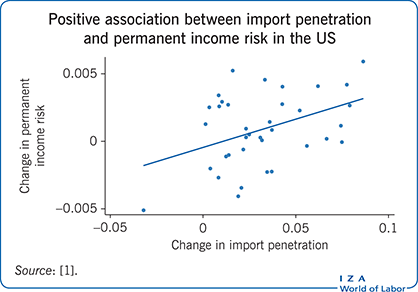Elevator pitch
Whether or not international trade exposes workers to economic insecurity depends on the nature of the trade exposure of the firm, or industry, in which the worker is employed. Import-competing industries experience higher levels of risk to workers’ incomes and employment, while firms that import intermediate production stages (“offshoring”) display bigger employment responses to small changes in workers’ wages, and are more likely to shut down home factories. But offshoring also helps firms weather economic shocks. Offshoring firms are more likely to survive and provide greater employment stability to their workers.
Key findings
Pros
Employment is more stable in firms that export goods to other countries.
Shifting some production from home factories to factories located in other countries (offshoring) may protect firms against temporary economic shocks and ensure greater employment stability for their workers.
Firms that engage in international trade, either by importing or exporting, have a higher probability of long-term survival.
Cons
Offshoring makes firms more responsive to changes in cross-country economic conditions, which could lead to larger swings in employment and wages at home.
The higher the level of net imports at the sector level, the higher the rate of job turnover among workers in that sector.
Offshoring intermediate production stages makes employment more responsive to wage changes and can lead to shutdowns of home factories.
Income risk (measured as the variance of unpredictable changes in income) is higher for workers employed in import-competing sectors.
